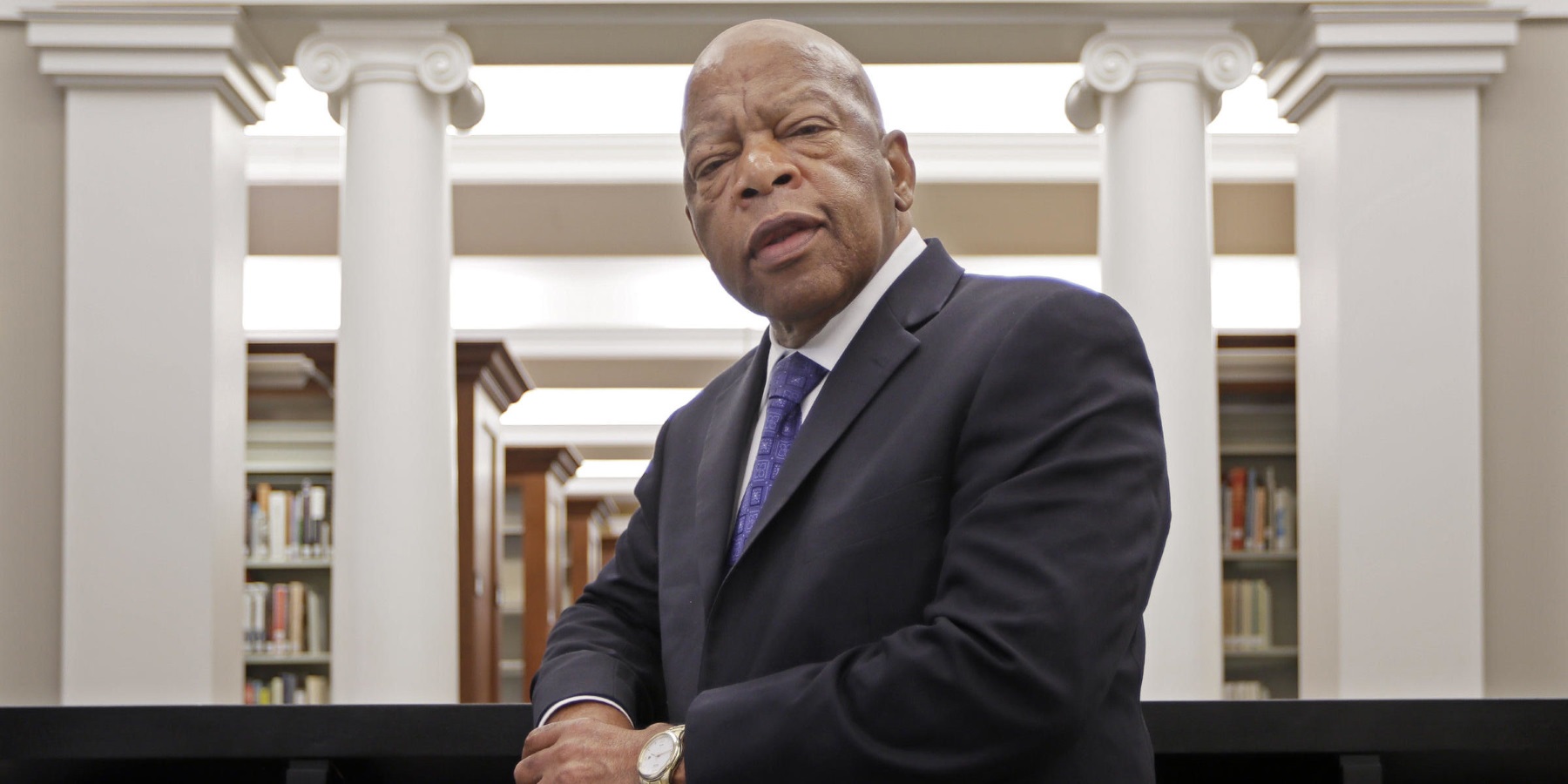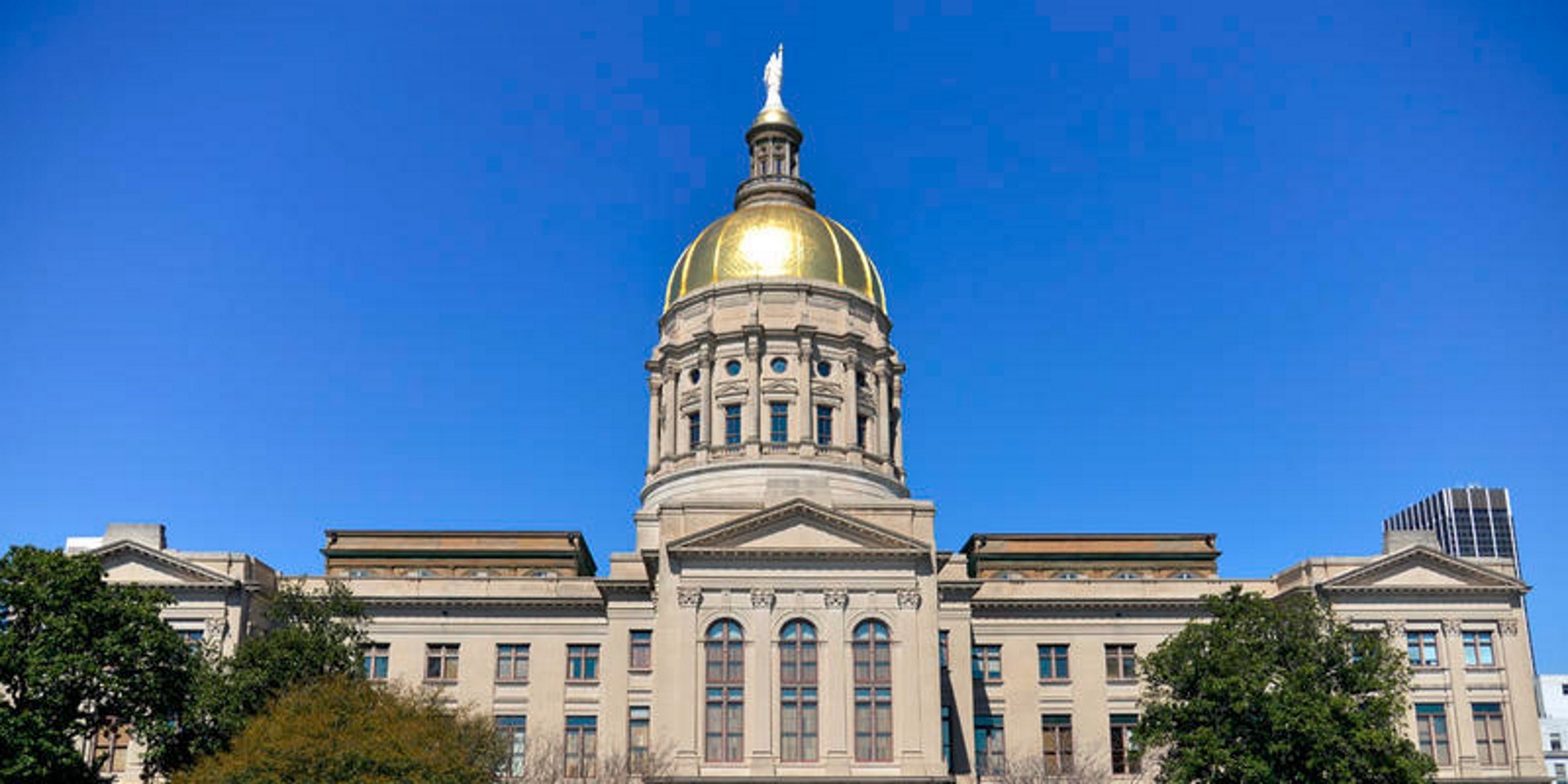U.S. Rep. John Lewis announced Thursday that he won’t speak at the opening of the Mississippi civil rights and history museums, saying it’s an “insult” that President Donald Trump will attend.
Like us on Facebook
The long-planned Saturday ceremony will mark Mississippi’s bicentennial of admission into the union. But what was intended as a moment of racial unity and atonement in the state with the largest share of African-Americans is descending into racial and partisan strife after Republican Mississippi Gov. Phil Bryant invited fellow Republican Trump to attend.
The NAACP has said Trump should cancel his planned appearance because of his divisive record on civil rights issues.
Lewis announced his decision in a joint statement with U.S. Rep. Bennie Thompson, Mississippi’s only Democrat in Congress.
“President Trump’s attendance and his hurtful policies are an insult to the people portrayed in this civil rights museum,” they said. “President Trump’s disparaging comments about women, the disabled, immigrants and National Football League players disrespect the efforts of Fannie Lou Hamer, Aaron Henry, Medgar Evers, Robert Clark, James Chaney, Andrew Goodman, Michael Schwerner and countless others who have given their all for Mississippi to be a better place.”
Lewis and Thompson join some other prominent Democrats in the state who have pulled out since Trump’s visit was announced. The chair of the state’s black legislative caucus, Democratic Rep. Sonya Williams Barnes of Gulfport, is urging people to stay away from Saturday’s events.
“I will await a time to visit the museum with my family without the president disrespecting the men and women who sacrificed their lives for the freedoms I am privileged to have today,” Barnes said Wednesday.
The White House later issued a statement calling it “unfortunate” that Lewis and Thompson won’t join the president in honoring the “incredible sacrifice civil rights leaders made to right the injustices in our history.”
The White House said Trump hopes others will join him in recognizing “that the movement was about removing barriers and unifying Americans of all backgrounds.”
Some said Trump’s record on racial issues makes his presence offensive, and plan to protest. Bryant, who has made frequent trips to Washington to work with Trump, is urging Mississippians to embrace the president’s visit, saying it will help bring worldwide attention to the state and the museums.
“We are better than that,” Bryant said Wednesday of those who oppose Trump. “We are kinder and more tolerant here in Mississippi than I think perhaps other places. Allow the president to come and honor Mississippi with his speech and his presence.”
Lewis, a civil rights icon and Georgia Democrat, was arrested in Jackson in 1961 with Freedom Riders who were protesting segregated bus travel. He was held at the infamous Mississippi State Penitentiary at Parchman. Later, as the head of the Student Nonviolent Coordinating Committee, Lewis helped organize Freedom Summer, a volunteer effort to register voters in Mississippi in 1964.
Lewis was expected to be one of the main speakers at the event, along with Myrlie Evers-Williams, the widow of assassinated Mississippi NAACP leader Medgar Evers. Evers-Williams has said she will address Trump’s presence.
“If God gives me the breath and the strength, I will address his attendance when I stand to speak,” she told The New York Times.
That’s in line with thinking of those who say African-Americans shouldn’t abandon the platform to Trump. The Rev. C.J. Rhodes, a prominent African-American clergyman, tweeted Thursday morning that Lewis’ “voice is needed here now more than ever.” Rhodes said he still planned to attend.
Reuben Anderson, the first black state Supreme Court justice, has said he won’t abandon the platform after helping to lead private fundraising efforts for the museums.
Two distinct museums are being dedicated under one roof. A museum of Mississippi History covers 15,000 years of human habitation. The Mississippi Civil Rights Museum focuses primarily on the years 1945 to 1976, telling about efforts to break down segregation and bigotry, and the violent backlash against that work.
The museums take an unflinching look at the state’s past — complete with displays of slave chains, Ku Klux Klan robes and graphic photos of lynchings and firebombings.









